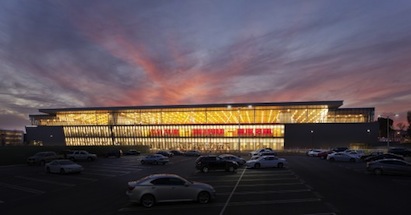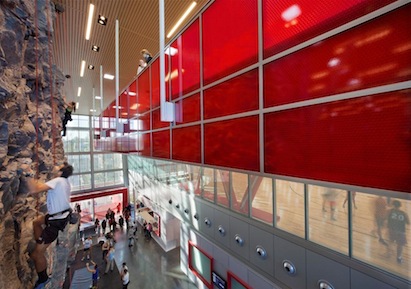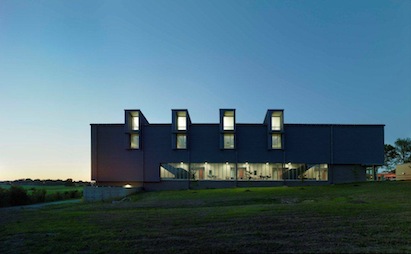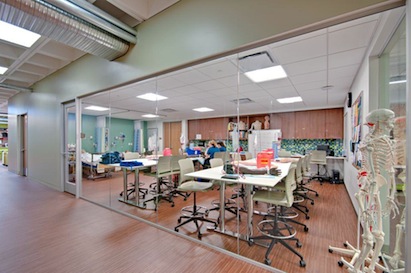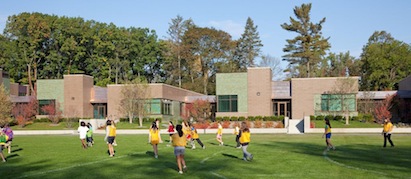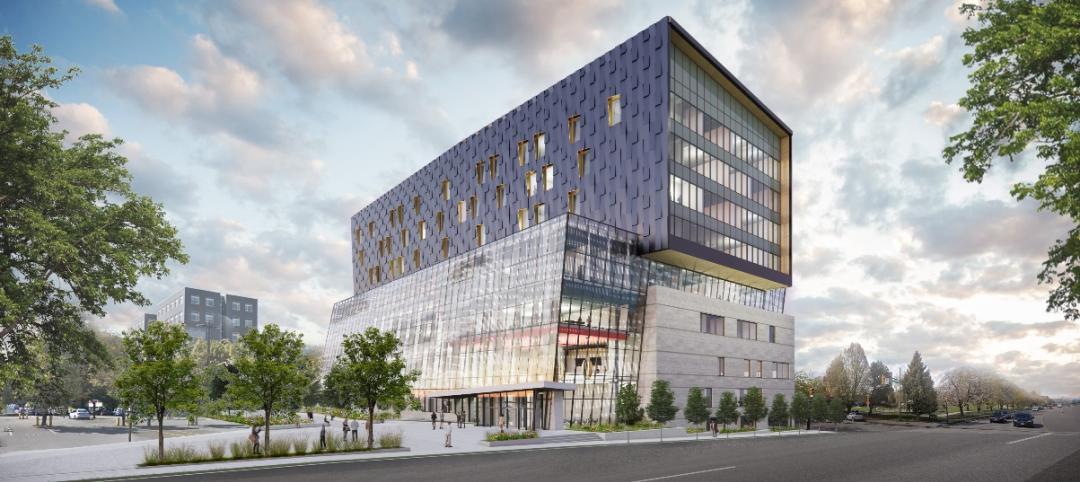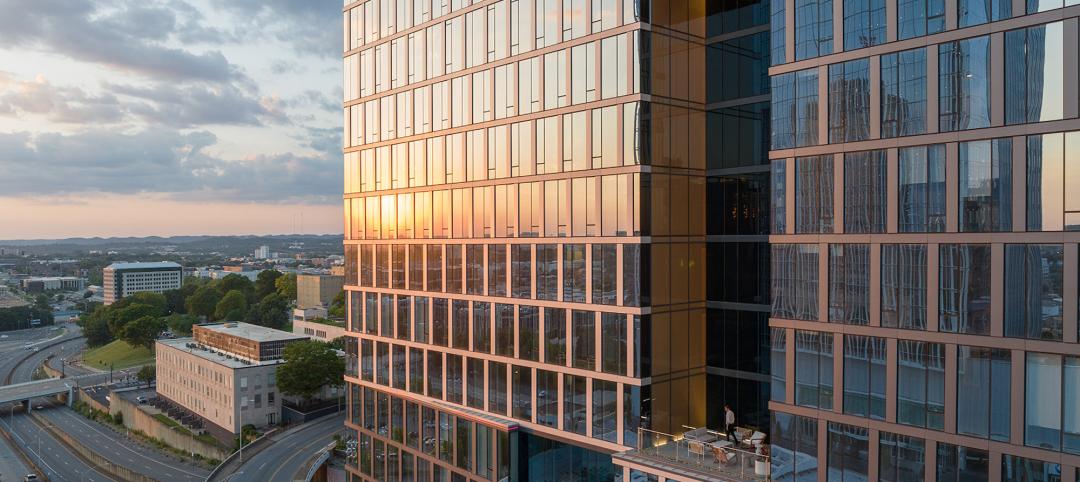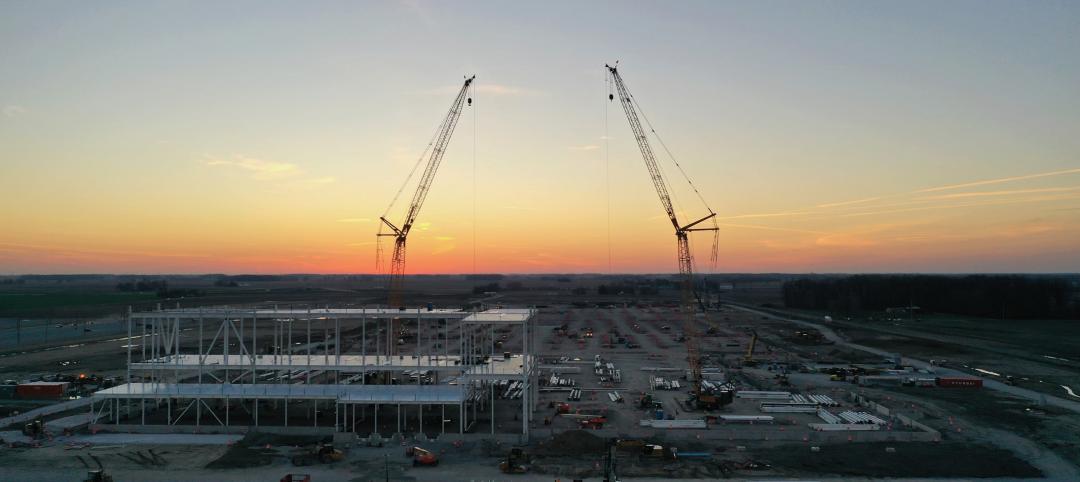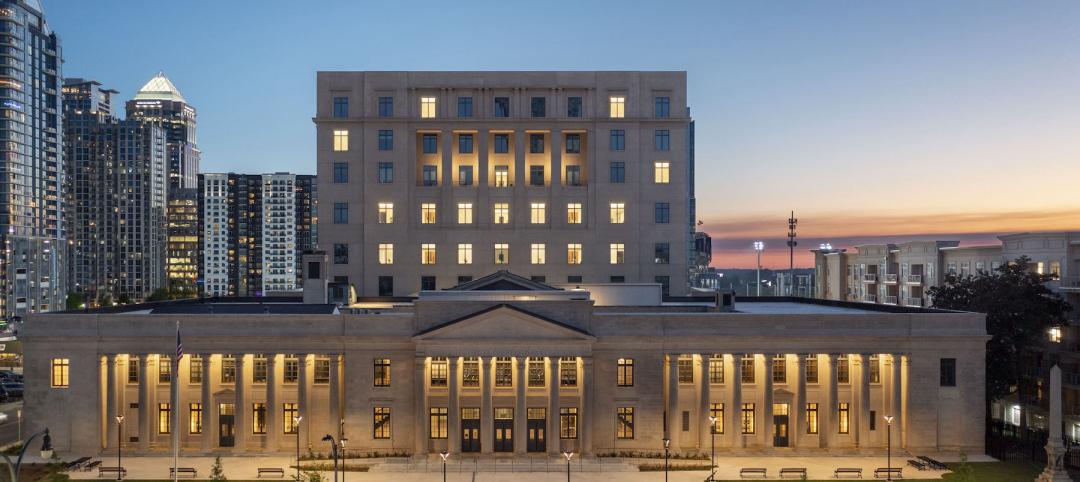Washington, D.C. – The American Institute of Architects (AIA) Committee on Architecture for Education (CAE) has selected five educational and cultural facilities for this year’s CAE Educational Facility Design Awards. The CAE Design Excellence Award honors educational facilities that the jury believes should serve as an example of a superb place in which to learn, furthering the client's mission, goals and educational program while demonstrating excellence in architectural design. These projects exemplify innovation through the client's educational goals through responsive and responsible programming, planning and design. Function and surrounding regional and community context are valued as part of the planning and design process.
California State University, Northridge Student Recreation Center; Northridge, California
LPA, Incorporated
The Student Recreation Center strategically creates a strong bookend to the east end of the campus, providing a dynamic, energetic approach to recreation. The design concept is clearly executed with a judicious use of colors and finishes. Upon entering the building natural lighting and material choices raise excitement and motivate movement. As an athletic building, it captures the energy and impetus of the various sporting activities inside. Strong transparency and interconnections between spaces inside the building are appealing, inviting and conducive to exercising. Compositionally it is assured and confident. Its community connection is highly apparent. Rainwater collection, natural ventilation, and day lighting are strong sustainable design features that are nicely integrated into the design. It was evident to the jury that students were involved in the conceptualization process and planning.
Sandy High School; Sandy, Oregon
Dull Olson Weekes – IBI Group Architects
Breathtakingly detailed as a public school, Sandy High School sets very high standards in terms of materials, finishes and aesthetics. Sitting lightly on the land, the building allows nature to penetrate the campus. It takes advantage of the hillside and creates panoramic views while nestling comfortably on the contours. Visible green roofs below adjacent classrooms add to hillside views while remaining roof areas are opportunities for power generation. Transparency between classrooms and common areas is executed boldly, with floor to ceiling glass suggesting a confidence with the user groups. Single loaded corridors were used to great effect by allowing natural light into both sides of learning spaces. Exterior treatments reflect the region in a wonderful and indigenous way and incorporate pleasant verandas with deep overhangs. The usable space per student and color combinations contribute to and promote student development.
Hinds Community College Jobie L. Martin Classroom Building; Jackson, Mississippi
Duvall Decker Architects
This simple and honest building with strong forms and an elegant façade shows that a few simple gestures can render a sense of identity to an otherwise nondescript campus. The rigorous use of materials, straightforward detailing, and clarity of concept elevates the modest program to a new level. The jury admired the light airy classrooms that combined the translucent, transparent, fixed, and operable glazing.
Mesa Community College Health Wellness Building; Mesa, Arizona
SmithGroupJJR
The transformation of this postindustrial concrete building into a light filled, translucent learning environment is exceptional. This project sets a high standard for reuse and repurposing of an existing building and demonstrates how constraints can benefit and strengthen a project. The conversion of leftover space between buildings creates dynamic and interactive circulation opportunities. The exterior is striking in its bold gestures, especially at night.
Cranbrook Kingswood Girls’ Middle School; Bloomfield Hills, Michigan
Lake|Flato Architects
This design integrates form and function in ways reminiscent of the Crow Island School. The building is indicative of an independent language that fits well within the campus context. Cranbrook Kingswood Girls' Middle School is beautifully detailed, appropriately contextual in a place where expectations are very high, modest in scale, yet intimate. The variety of shared common learning spaces connects directly to the exterior while providing opportunities to integrate imaginative ideas into the educational environment. The scale of the interstitial spaces and classrooms give a very secure feeling to the learning environment. This school builds on great traditions but creates a quality and life of its own.
Jury
The 2013 CAE Educational Facility Design Awards jury includes: Steven M. Shiver, AIA, Chair, NAC Architecture; John R. Dale, FAIA, Harley Ellis Devereaux; Linda Nelson Keane, AIA; Victor Sidy, AIA, Taliesin School of Architecture and C. Kenneth Tanner, University of Georgia.
About the Committee on Architecture for Education (CAE)
The CAE is a large and active group of architects and allied professionals concerned with the quality and design of all types of educational, cultural, and recreational facilities. While a large portion of CAE members practice in the K-12 and post-secondary education markets, they look to serve the needs of those in the entire pre-K to 99 markets. CAE identifies national educational facility issues critical to architects and works to strengthen relationships with allied organizations, client groups, and the public.
About The American Institute of Architects
Founded in 1857, members of the American Institute of Architects consistently work to create more valuable, healthy, secure, and sustainable buildings, neighborhoods, and communities. Through nearly 300 state and local chapters, the AIA advocates for public policies that promote economic vitality and public well being. Members adhere to a code of ethics and conduct to ensure the highest professional standards. The AIA provides members with tools and resources to assist them in their careers and business as well as engaging civic and government leaders, and the public to find solutions to pressing issues facing our communities, institutions, nation and world. Visit www.aia.org.
Related Stories
Higher Education | Aug 7, 2023
Building a better academic workplace
Gensler's David Craig and Melany Park show how agile, efficient workplaces bring university faculty and staff closer together while supporting individual needs.
University Buildings | Aug 7, 2023
Eight-story Vancouver Community College building dedicated to clean energy, electric vehicle education
The Centre for Clean Energy and Automotive Innovation, to be designed by Stantec, will house classrooms, labs, a library and learning center, an Indigenous gathering space, administrative offices, and multiple collaborative learning spaces.
Green | Aug 7, 2023
Rooftop photovoltaic panels credited with propelling solar energy output to record high
Solar provided a record-high 7.3% of U.S. electrical generation in May, “driven in large part by growth in ‘estimated’ small-scale (e.g., rooftop) solar PV whose output increased by 25.6% and accounted for nearly a third (31.9%) of total solar production,” according to a report by the U.S. Energy Information Administration.
Resiliency | Aug 7, 2023
Creative ways cities are seeking to beat urban heat gain
As temperatures in many areas hit record highs this summer, cities around the world are turning to creative solutions to cope with the heat. Here are several creative ways cities are seeking to beat urban heat gain.
Government Buildings | Aug 7, 2023
Nearly $1 billion earmarked for energy efficiency upgrades to federal buildings
The U.S. General Services Administration (GSA) recently announced plans to use $975 million in Inflation Reduction Act funding for energy efficiency and clean energy upgrades to federal buildings across the country. The investment will impact about 40 million sf, or about 20% of GSA’s federal buildings portfolio.
MFPRO+ New Projects | Aug 4, 2023
Nashville gets 'first-of-its-kind' residential tower
Global architecture firm Goettsch Partners announces the completion of Alcove, a new 356-unit residential tower in Nashville, Tenn., developed by Giarratana LLC.
Industrial Facilities | Aug 3, 2023
The state of battery manufacturing in the era of EV
One of the most significant changes seen in today’s battery plant is the full manufacturing process—from raw materials to the fully operational battery.
Government Buildings | Aug 2, 2023
A historic courthouse in Charlotte is updated and expanded by Robert A.M. Stern Architects
Robert A.M. Stern Architects’ design retains the original building’s look and presence.
Hotel Facilities | Aug 2, 2023
Top 5 markets for hotel construction
According to the United States Construction Pipeline Trend Report by Lodging Econometrics (LE) for Q2 2023, the five markets with the largest hotel construction pipelines are Dallas with a record-high 184 projects/21,501 rooms, Atlanta with 141 projects/17,993 rooms, Phoenix with 119 projects/16,107 rooms, Nashville with 116 projects/15,346 rooms, and Los Angeles with 112 projects/17,797 rooms.
Architects | Aug 1, 2023
Ware Malcomb announces hire of Jason Golub as Regional Director
In this role, Golub is responsible for the overall leadership and continued growth of the office.


